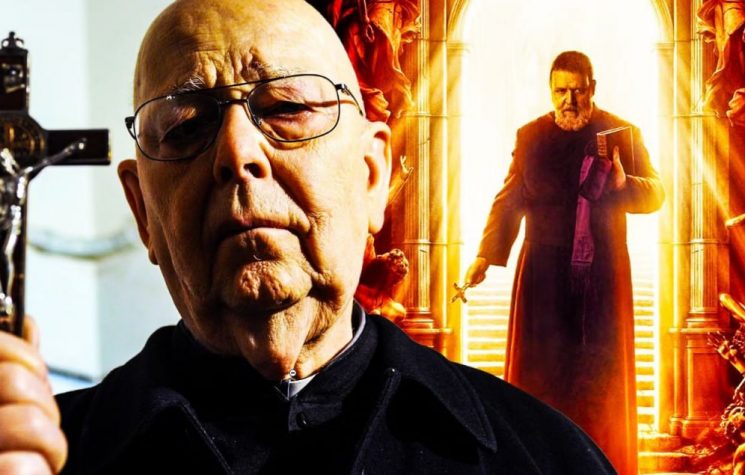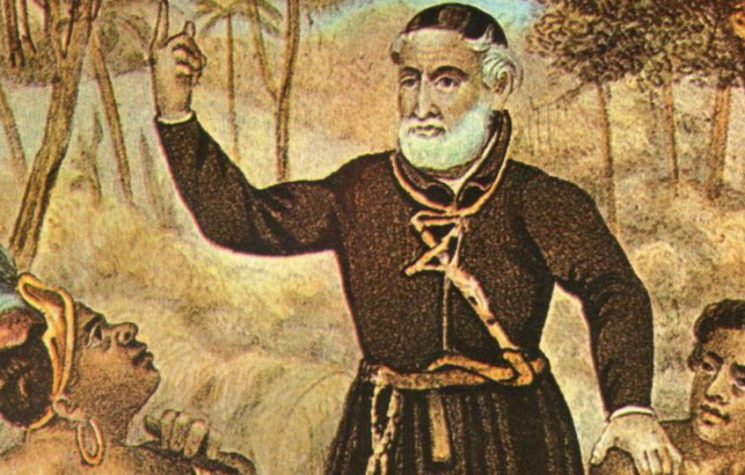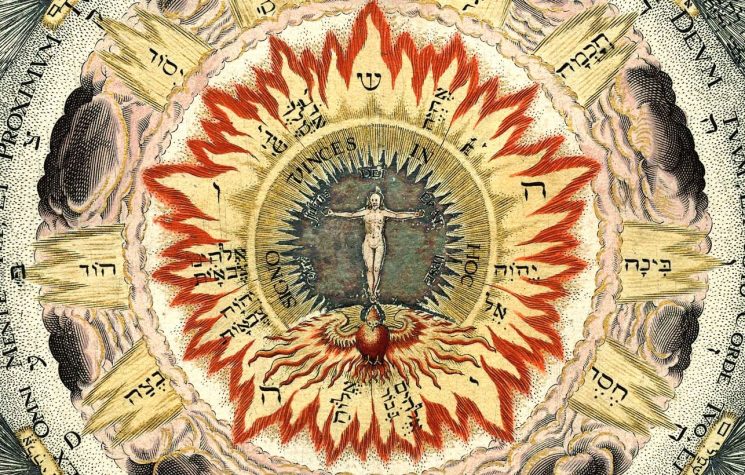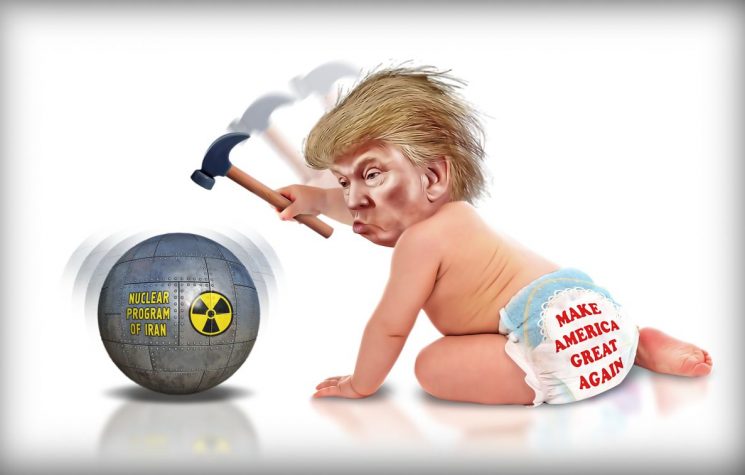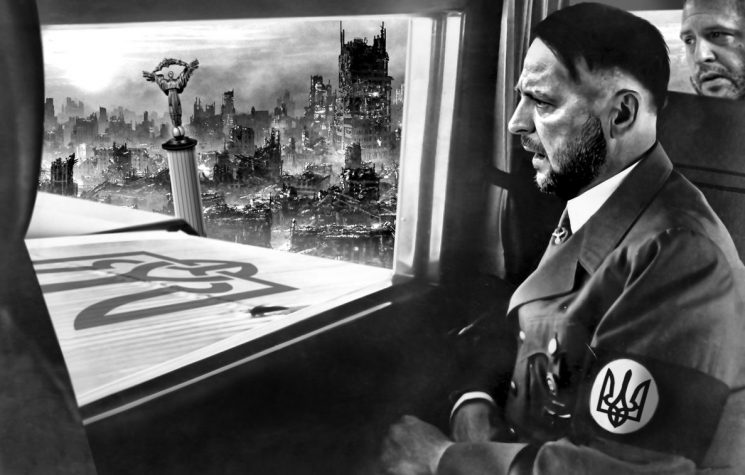The Term ‘Christian Nationalism’ is incessantly used to scare the U.S. voters but will it scare them?
❗️Join us on Telegram![]() , Twitter
, Twitter![]() , and VK
, and VK![]() .
.
Contact us: info@strategic-culture.su
Defining the undefinable
It is enough to open the Internet to get an idea about a scare tactic against Christian Nationalists applied by their opponents. Just a few examples: I Have Seen Christian Nationalism Up Close. It Terrifies Me (Time Magazine), Christian Nationalism Is ‘Single Biggest Threat’ to America’s Religious Freedom (the Baptist Joint Committee for Religious Liberty), Christian Nationalism Is ‘Single Biggest Threat’ to … (Center for American Progress), The danger of Christian nationalism (ACLU of South Carolina).
As many people are not familiar with Christian Nationalism it may be worth to point out how commonly non-Christian Nationalists and in some cases their adversaries define them. Such definitions became part of the mainstream media vocabulary. Some definitions vary but perhaps not that much. At a general level, Christian nationalism is defined as a type of nationalism affiliated with Christianity. It primary focuses on the U.S. internal politics, such as legislating civil and criminal laws that reflect in their view Christianity and the role of religion in political and social life.
Professors Samuel Perry and Andrew Whitehead insist that despite some folks dismissing Christian nationalism as “a scare tactic,” Christian nationalism has an academic definition. They define it as “a cultural framework that idealizes and advocates a fusion of Christianity with American civic life.” On a common people level a Pew respondent said that Christian nationalism meant “White dudes who are scared to lose power to women and minorities hiding behind a Bible.”
Coming to terms with discrimination
How big is that scare campaign and to what extent it can be projected in terms of hoo-ha? The first aspect, possibly blown out of proportions is discrimination. Have the minorities already been scared? If so, can you scare them to a greater extent? According to the 2022 African American Research Collaborative (AARC) survey, Black respondents are the most worried about the risk of white nationalism, 73% of whom are worried about extreme Republicans and white nationalists promoting hate towards immigrants and minorities. Asian Americans are the next most concerned with white nationalism at 71%, followed by Latinos at 67%. According to the authors, white nationalism is now becoming intrinsically linked to Christian nationalism, and both are espousing that whiteness is being erased and attacked by activists and political leaders deemed to be on the far left. According to the survey authors in order for white supremacy to survive, Christian nationalist consider violence and intimidation dominant strategies to prevent social progress and equitable access to education, job opportunities, and health resources. Within envisaged scenario communities of color are the primary targets of these strategies.
This scare tactics may work. Unfortunately, in the U.S., nearly 43,000 people died from gun violence in 2023. Researchers of violence and crimes noted that the victims of gun violence were disproportionately young Blacks. But can you blame for that Christian Nationalists? Are there any proofs that they are behind racially motivated violence? The fact that they, Christian Nationalists predominantly declare themselves in favour of gun laws cannot be equated with the willingness to hate or kill communities of colour.
The 2023 released PRRI/Brookings Christian Nationalism Survey in its analytical part seems to be high on rhetoric and maintains that they, Christian Nationalists, are a growing threat to the U.S. According to the findings of the survey, they are less likely to see that racism may pose a problem to American society. Thus, they get closer to Nikki Haley who believes that there is no racism in America. Importantly, 66% of white Christian nationalism sympathizers and 81% of adherents believe in replacement theory, the view that immigrants are “invading our country and replacing our cultural and ethnic background.”
There are however other modes of possible discrimination. American sociologists Samuel L. Perry and Philip S. Gorski claim some Americans (Christian Nationalists) share a set of common anti-democratic beliefs and principles. The latter, they insist, stems from the wrong grasp of history and Christian Nationalists’ belief that we should advocate Christian values in the government. Such a credence puts people like them at the centre of the American story and it puts the American story at the centre of the world. So, a person with such believes, they argue, will act as if you were always here and reject “The 1619 Project.” Not only that, their term “us” excludes all the immigrants from western or central Europe who showed up here in 1870 or 1910. They are classified as “them”.
And the above sociologists claim that there is much more that Christian Nationalists are against: the radical minority-identity politics of Black Lives Matter or the George Floyd protests or Colin Kaepernick or leftism in all forms are deemed by them anti-American. In line with their arguments such views would apply to anybody who subscribes to Trumpism (that is approximately half of the population of the U.S.) and ultimately the political figures who advocate for it.
For instance, Marjorie Taylor Greene the only well-known politician who openly admits to be a Christian Nationalist. Surely the stuff the sociologists strut is scary but how much more scare can it cause?
When Donald Trump in his 16 June 2015 speech announcing his candidacy for the presidency of the USA spoke disrespectfully about Mexicans, he might scare some Hispanics knowing that they are essentially not his electorate. To be exact, he stated:
When Mexico sends its people, they’re not sending their best. They’re sending people that have lots of problems, and they’re bringing those problems with us [sic]. They’re bringing drugs. They’re bringing crime. They’re rapists. And some, I assume, are good people.*
Those Mexicans according to the criteria of Perry and Gorski are those whom Christian Nationalists would label “them”. One may have serious doubts whether reusing those words by Trump in his present campaign would be of some benefit in terms of scaring his present electorate. Occasionally foul-mouthed in 2015 Donald has learned a lot since then. He knows that to win in 2024 he needs not only Christian Nationalists’ backing but also minorities. He is using his language more carefully. Shrewd observers note that in his recent rallies there is not a single one where he wouldn’t be surrounded by a few Blacks.
Overturning the 2020 election
Political scientist Mark David Hall finds the numbers of Christian Nationalists grossly inflated. The most prominent example of this distortion comes from sociologists Andrew Whitehead and Samuel Perry. In their study they contend that 51.9% of Americans are fully or partially supportive of Christian nationalism. Fear feeds on itself!
The facts are that Christian Nationalists embrace a number of patriotic causes which gain popularity among folks not associated with them. Interestingly, the Pew Research Center reported in October of 2022 that 54% of Americans haven’t even heard the phrase “Christian nationalism.” So, it looks that ideological enemies are trying to scare people with something people have never heard about! In the light of this can the report by historian Jemar Tisby in which he averred that “White Christian nationalism is the greatest threat to democracy” be true? Pew also reports that 5% had a favourable view of the phenomenon of Christian Nationalism, while 24% had an unfavourable view.
One of those seeing Christian Nationalists as a threat to democracy is writer David Gushee. In his book “Defending Democracy from its Christian Enemies” the author warns that reactionary Christians are leading the U.S. to authoritarianism. Trump’s win in 2024 with the support of conservative Christians may have a “disastrous” outcome. Can you stir people any deeper than that?
One of the stories that keeps on coming back is as to whether the 2020 elections were falsified. The December 2020 Quinnipiac University poll says 77 percent of Republicans believe there was widespread fraud during the election. As Christian Nationalists are commonly presumed to vote en masse for Trump the percentage of those convinced about the fraud is likely to be even higher.
It is less known that one of those who wanted to overturn the results of 2020 elections is the newly elected 45th Speaker of the House Mike Johnson. He is a committed Christian but doesn’t consider himself to be a Christian Nationalist. But it is impossible not to see that his actions in the political arena coincide with those of Christian Nationalists. How the opponents can scare him and the like is hard to say, as the speaker is not afraid. For the time being it is the other way around – if they are not scared, they are shocked by his appointment to such a prestigious and influential post. The ideological adversaries must work hard on how to confront him and his Christian ideas.
Yet it is much less known that after the 2020 election, Mike Johnson frequently echoed some of the conspiracy theories that Donald Trump was advancing to explain his loss.
Furthermore, he voted against certifying Joe Biden’s win as Congress reconvened after the attack on the Capitol on January 6. He even filed a brief to the Supreme Court in a lawsuit that sought to overturn the 2020 election. The court threw out that case. That’s one of the ways of how the system of checks and balances works in practise.
It may be insightful to hear a conversation in Congress after Johnson’s appointment and one may wonder as to whether it had anything to do with an attempt to scare him and his supporters. The conversation was as follows:
RACHEL SCOTT: Mr. Johnson, you helped lead efforts to overturn the 2020 election results.
CONGRESSFOLK: AH, SHUT UP SHUT UP.
JOHNSON: Next question, next question.
CHAKRABARTI: So we have members of the GOP caucus there telling reporters to shut up for just asking a question about the 2020 election and then Mike Johnson declining to even answer. Philip, what does that tell you?
GORSKI: Tells me that Mike Johnson and probably many of his colleagues believe that the election really was stolen. They believe that the failed self-coup attempt on January 6th of 2021 was an expression of legitimate political protests, that it was a tourist visit to the U. S. Capitol and that they’re tired of being asked about this.
It is all about values
That Johnson the speaker hasn’t been exposed to any scare tactics up till now is strange and may be explained by his very recent spectacular political rise on a federal level. The most likely argument against him may be that he is too conservative and his Christian moral standards are at odds with majority. As mentioned earlier David Gushee’s warning may be applied to possibly re-elected Donald Trump and Mike Johnson:
“Christian state with Christian morality essentially dictated by law and Christianity being enshrined legally and in culture as the official source of the laws and values of the United States. There might be roughly about 25% of the population that’s really kind of reactionary and committed to this authoritarian ideology. Since they’re not a majority, how much damage could they do?”
It is unlikely that such scaremongering is going to worry too much Mike Johnson and his supporters. Mike Johnson’s Christian faith has been central to both his personal and professional life, as proven by his work for the Alliance Defending Freedom, a conservative Christian legal advocacy group that supports things like criminalizing homosexuality.
In another case, Johnson wrote an amicus brief to the Supreme Court in its historic case, Lawrence v. Texas, that eventually overturned state laws banning same sex intimacy. Johnson has frequently described his legal work as defending the Christian faith.
To demonstrate what kind of a dauntless person Johnson is let me quote his 2016
Louisiana Baptist Message,
“Some people are called to pastoral ministry. I was called to legal ministry. And I’ve been out on the front lines of the culture war defending religious freedom, the sanctity of human life, and biblical values, including the defense of traditional marriage, and other ideals that have been under assault.”
Mark Ballard the Washington correspondent for the Times-Picayun who has known Johnson for 15 years confirms the following:
“When he went into the legislature, it was primarily because the previous legislator became a judge. And he was elected, pretty much overwhelmingly in that, and then started pursuing almost from the get-go bills that were against same sex marriage, protecting pastors and anti-abortion type of legislation.”
But what if Johnson doesn’t get his way at the federal level? Well, it may be recalled that early Baptists did not call on Christians to stop caring about the moral tone or direction of culture, but just not to use the coercive power of the state to enforce their vision.
Migration threat to the U.S.
The recent border stand-off between Texas governor Greg Abbott and president Biden was contested by both sides of the conflict in legal terms with no solution in sight. The background of the conflict is as follows: Last week, the Supreme Court sided with federal agents to remove razor wire put in place by Texas along the Rio Grande. The state is using wire and state agents to block Border Patrol from accessing a section of the border in Eagle Pass. Texas governor interprets it differently:
“President Biden has violated his oath to faithfully execute immigration laws enacted by Congress. Instead of prosecuting immigrants for the federal crime of illegal entry, President Biden has sent his lawyers into federal courts to sue Texas for taking action to secure the border.”
As 25 states with Republican governors signed a letter supporting Texas in border control fight one may only hope it won’t lead to a civil war or Texit. Was there any reaction on part of Christian Nationalists?
A group of six patriot-world influencers, including Kim Yeater, who runs a self-empowerment self-help group and an anti-voter fraud group, started organizing the convoy more than a month ago. The convoy was to depart from Virginia Beach then split up for separate rallies on Feb. 3, one near Eagle Pass, Texas, a second in Yuma, Arizona, and a third in San Ysidro, California. The convoy organisers named themselves “God’s army” and say they’re on a mission to stand up against the “globalists” who they claim are conspiring to keep U.S. borders open and destroy the country. Organiser’s website called upon “law abiding, freedom-loving Americans,” to join the cause. How can the Christian Nationalists’ adversaries discourage support for them? Perhaps some of their opponents would like to join the cause? Can anyone in his/her right senses not to see that massive crossings of illegal immigrants into the U.S. (last year more than two million) can endanger the national economy and security? Should it be tolerated just because President Biden wants a massive electoral boost from the Hispanic electorate?
Finally, seeing Christian Nationalists reacting to such a frightening situation on the southern border may have a widespread response among non-church goers but also unaffiliated. LSU sociologists Samuel Stroope and Heather Rackin did a lot of digging into details and analysing of the votes Trump received in 2016 elections and came to the conclusion the 2016 Christian nationalist vote for Trump was buoyed by the religiously disconnected, or “unchurched.” Christian nationalism was important among non-churchgoers so, obviously nobody was in a position to scare them. One won’t risk much envisaging the same for the 2024 elections.
No wonder, analysing Christian Nationalism so much professor Gorski came up with a new definition of it on his own:
It’s not conservative evangelicalism. It’s not right-wing populism, it’s not white nationalism. It overlaps with all of those things, but it’s not with any of them.








